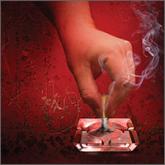In the article by Smith et al, “ ‘Cold turkey’ works best for smoking cessation” (J Fam Pract. 2017;66:174-176), the authors highlighted a study by Lindson-Hawley et al showing that abrupt cessation was associated with higher quit rates than gradual cessation.1
While I agree with Smith et al’s assessment of abrupt cessation for patients in the preparation and action stages of change as created by DiClemente and Prochaska,2 most clinical patients are in the pre-contemplative and contemplative stages of change. A bias of the study was that all recruited participants were willing to quit within 2 weeks.
A systematic review by the same authors (Lindson-Hawley et al) compared gradual reduction of smoking with abrupt cessation and found comparable quit rates.3 Smith et al commented that the reason for this conclusion was limitations in the studies, including differences in patient populations, outcome definitions, and types of interventions.
Because a large subset of clinical patients are in the pre-contemplative and contemplative stages of change, I believe gradual cessation remains an important technique to use while patients transition their beliefs.
Jeff Ebel, DO
Toledo, Ohio
